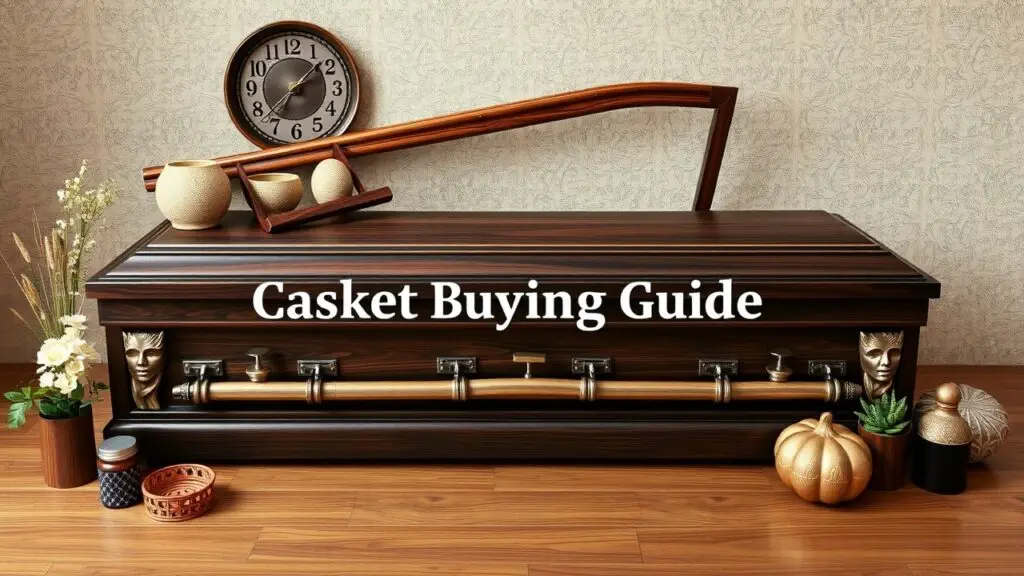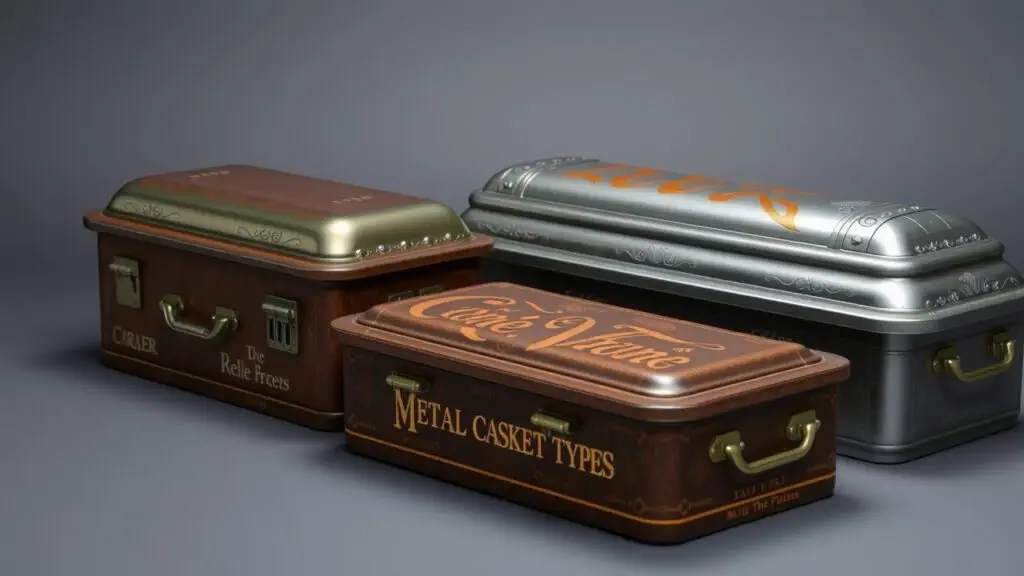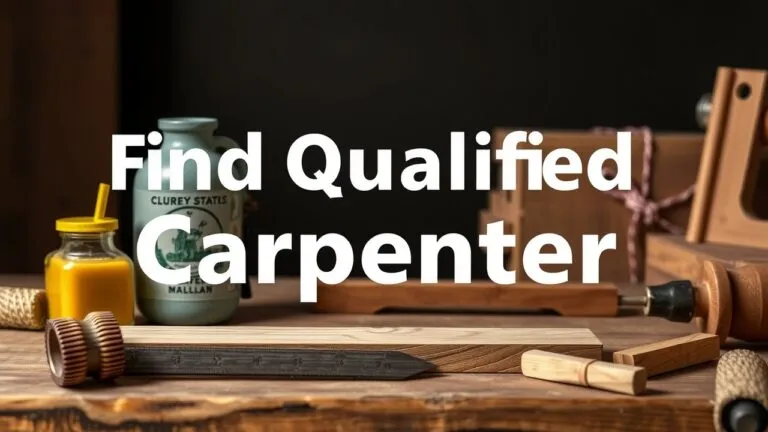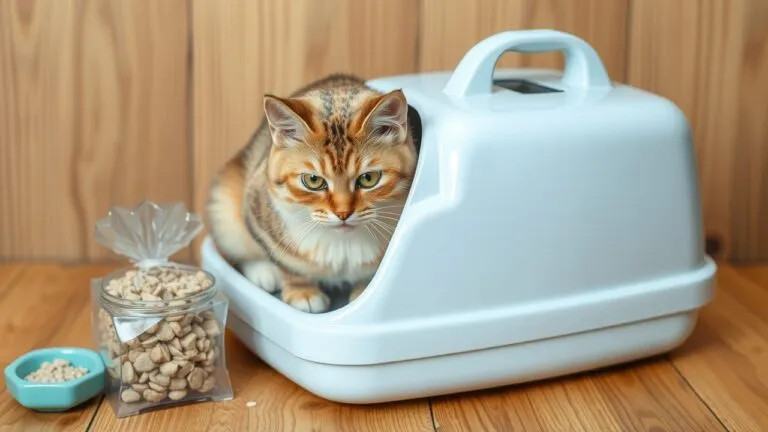Types of caskets vary widely; this guide covers materials like metal, wood, and alternative options, exploring styles, features, and price ranges to help you choose the right casket for your needs.
What Are Caskets and Why Do They Matter?

Caskets are special containers for holding the remains of a deceased person. They play an important role in funeral services. A casket helps honor and protect the body during burial or cremation. Knowing about different types of caskets is key for people planning funerals or making arrangements for loved ones.
Here are some types of funeral caskets:
- Metal Caskets: These caskets are often made from steel, stainless steel, or copper. Metal caskets are very strong and can protect against outside elements.
- Wood Caskets: Made from hardwoods like oak, cherry, or mahogany, wood caskets give a traditional look that many families like. The price can change a lot depending on the type of wood.
- Cremation Caskets: These caskets are made for cremation. They usually have a simple design and are made from materials that can burn easily, like cardboard or softwood.
When you choose a casket, think about your budget and what feels right for you or your loved one. There are also affordable options that maintain dignity without costing too much.
Understanding these choices helps families make smart decisions in tough times while ensuring their choices reflect their values and wishes.
Overview of Main Categories of Caskets
Casket categories include four main types:
- Wooden Casks: Known for their beauty, wooden casks come in many styles from simple to fancy.
- Metal Casks: These are strong and durable with smooth designs perfect for traditional burials.
- Eco-Friendly Casks: More people want eco-friendly options today. These models break down naturally over time and are made from sustainable materials.
- Biodegradable Casks: Similar to eco-friendly ones, biodegradable casks break down after burial without harming the planet.
Also, there are specific cremation options for different kinds of funeral services. This gives families flexibility based on what they need—whether they want direct cremation or more traditional memorial services with viewings before cremation happens.
By learning about these categories and material differences, people can choose what fits best while showing respect for those who have passed away.
Wood Caskets Explained
Wood caskets are a common choice for families during funeral planning. They bring a natural and timeless feel that can be comforting in tough times. Knowing about the materials, styles, and features of wooden caskets helps you make the best choice.
What Are Wood Caskets Made Of?
Wood caskets come from different kinds of wood. This choice can change how they look, how long they last, and how much they cost. There are two main types: solid wood construction and veneer finishes. Solid wood caskets use one kind of hardwood or softwood for the whole piece, giving them strength and lasting power. Veneer finishes use a thin layer of real wood over cheaper materials to create a nice appearance while keeping costs lower.
Common Types of Wood Used
Different woods have special traits that can affect their use for caskets:
- Oak: This wood is strong and durable, making it a great choice.
- Mahogany: Known for its rich color and fine grain, mahogany adds elegance.
- Cherry: Cherry wood is beautiful with a smooth finish that darkens over time.
- Pine: Pine is cheaper and has a rustic charm; it’s light but still warm.
These options let families pick based on what they like and their budget.
Features & Styles Available in Wooden Caskets
When picking wooden caskets, many features improve comfort and style:
Interior Linings
The inside linings are key to how the casket feels. Fabrics like satin or velvet add softness and class. These materials not only look good but also provide comfort during visitations.
Hardware Details
The handles and hinges are important parts of the design too. Different styles can change how easy it is to use the casket and how it looks overall.
Full-Couch vs Half-Couch Designs
Casket designs vary between full-couch models—which let you see the whole body—and half-couch designs—which cover part of the body while showing another section usually used during services. Each style meets different wishes on how loved ones want to remember those who passed.
Pros & Cons of Choosing a Wooden Casket
Choosing wooden coffins has both good points and some drawbacks:
Advantages:
- Natural materials create a timeless look that connects people emotionally.
- Many styles cater to different tastes among families.
- Durability varies; hardwoods like oak or mahogany last longer than softwoods.
Disadvantages:
- They can be pricier than other material options, which might limit choices for some families.
- There are environmental concerns if sourced without care; it’s wise to consider eco-friendly options when selecting materials.
Understanding these pros and cons helps people make informed decisions between high-end wooden coffins and more affordable options that fit their needs while respecting values tied to sustainability.
Metal Casket Insights
Types of Metals Used in Metal Casket Construction
Metal caskets are a common choice for families because they last long and offer different styles. The main types of metals used to make these caskets are steel, stainless steel, bronze, and copper.
Steel caskets can be made in various gauges, which means how thick the metal is. A 20-gauge steel casket is thinner than a 16-gauge steel casket. Thicker metal usually means better protection. So, a 16-gauge steel casket is stronger and more resistant to rust than a 20-gauge one.
Stainless steel is a great option too. It is affordable and lasts a long time without rusting. This makes it good for different places. For families wanting something fancy, bronze or copper caskets are beautiful choices. These materials not only last long but also look nice during memorial services.
Here’s a quick look at the types of metals:
| Type of Metal | Gauge Options | Durability | Cost Range |
|---|---|---|---|
| Steel | 20-gauge / 16-gauge | Moderate | Lower |
| Stainless Steel | Various | High | Moderate |
| Bronze | N/A | Very High | Higher |
| Copper | N/A | Very High | Higher |
Key Features Unique to Metal Options
Metal caskets have special features that make them stand out from wooden or biodegradable options. One big feature is the gaskets or seals found in gasketed metal caskets. These seals help keep air out, which helps slow down decay and keeps the body preserved longer.
The finishes on metal caskets also vary a lot. Brushed finishes are great because they hide fingerprints better than polished ones. However, polished finishes can be shinier but may need more cleaning to keep looking good.
Pros & Cons: Durability vs. Style
When you think about metal options for burials, there are both good and not-so-good things about these materials.
A major plus is their long-lasting nature. Metal caskets stand up to weather much longer than wood ones because of how they are made and what they are made from. Plus, many metals can be recycled after use, which is good for the environment.
On the downside, high-end metals like bronze or copper can cost more compared to regular steel or stainless steel options. This could be a problem for families trying to stick to a budget while still wanting quality without paying extra just for looks.
Exploring Eco-Conscious and Unique Casket Choices
More people are looking for eco-friendly options for funerals. Biodegradable caskets are becoming more popular. These caskets use materials like bamboo and cardboard that break down naturally over time. This makes them a sustainable choice compared to traditional burial methods, which often involve metal or hardwood caskets.
Bamboo caskets are light but strong. They look nice and help the environment too. Cardboard caskets have simple designs that families can decorate with personal touches or messages. These options are great for families who want to honor their loved ones without harming the planet.
Besides bamboo and cardboard, there are other unique choices like wicker and cloth-covered caskets. Wicker caskets are made from natural materials like willow or rattan. They have a rustic charm and are biodegradable too. Cloth-covered options let families choose fabrics that match their tastes or cultural traditions.
When considering these eco-conscious options, it’s good to think about not just how they look but also how durable they are. Each choice should meet individual needs during this sensitive time.
Pros & Cons of Alternative Caskets
When looking at alternative materials for a casket, there are some important factors to think about:
Advantages:
- Sustainability: Many eco-friendly options use renewable resources, which helps lower environmental impact.
- Affordability: Biodegradable choices often cost less than traditional wooden or metal models.
- Unique Looks: Families can pick designs that show off their values or personal styles.
Disadvantages:
- Durability Issues: Some biodegradable materials may not last as long as traditional wood or metal, so they might not hold up as well.
- Limited Availability: Finding specific types of eco-friendly products can be tough depending on where you live.
Families should carefully consider these pros and cons when choosing burial options that match their beliefs and practical needs regarding cost and availability.
Understanding Casket Dimensions and Personalization
When picking a casket, it’s super important to know about sizes and how to make it special. Caskets come in different sizes, like standard adult sizes and smaller child sizes. Some families even want custom or personalized caskets to show off their loved ones’ unique personalities.
Standard Casket Dimensions: Adult vs. Child Sizes
Standard caskets are usually 75 inches long and 28 inches wide for adults. This size fits most adult bodies well. Child caskets are shorter, measuring between 30 to 48 inches long, depending on the child’s age.
Getting the right size is really important. It makes sure the person is comfortable and fits well in burial plots or for cremation.
Interior Linings and Their Impact on Price and Aesthetics
The inside of a casket can change how it looks and costs. Here are some common materials used for linings:
- Satin Lining: Smooth with a shiny finish; often cheaper.
- Velvet Lining: Soft feel with deep colors; usually more expensive.
- Crepe Lining: Light fabric that looks nice at a reasonable price.
These linings not only improve the look but also affect the price based on what they’re made from.
Additional Features That Affect Cost and Functionality
A few features can change both how well a casket works and its cost:
- Gasketed Caskets: These keep moisture out with seals.
- Sealed Caskets: Made to block air and water completely.
- Protective Caskets: Strong materials help during transport or burial.
- Handles & Hardware: Different styles and materials can change how they look and work.
Each feature plays a role in how much the final price is while also adding either protection or style.
Customization Options for Caskets
Customization options let families create unique tributes. Here are some ideas:
- Engraving names or personal messages on plaques.
- Choosing specific colors or finishes.
- Adding special symbols like religious icons.
- Including photographs in designs.
Costs for customization can vary a lot. Simple engravings might not cost much, but more complicated designs could get pricey because they take more time to create.
By knowing these things, people can make better choices when looking at different types of caskets that fit their needs while remembering their loved ones nicely.
Deciphering Casket Costs: A Price Breakdown

Understanding casket prices is really important if you’re planning a funeral. Casket prices can change a lot based on what they’re made of, how they look, and any extra features. This guide will help you see the different types of caskets and what they cost.
Breakdown of Casket Prices by Material
| Material | Price Range |
|---|---|
| Metal Caskets | $1,000 – $3,500 |
| Wood Caskets | $2,000 – $5,000 |
| Eco-Friendly Caskets | $800 – $3,000 |
| Cremation Caskets | $300 – $2,500 |
Metal caskets are usually cheaper than wooden ones but may not look as nice. Wooden caskets give a classic appearance but cost more because of the craftsmanship involved. Eco-friendly options are becoming more popular since they use sustainable materials and have less impact on the environment.
Factors Affecting Casket Price
Several things can change how much a casket costs:
- Material Costs: The kind of material used matters; high-quality woods like mahogany or cherry raise prices.
- Gauge Pricing: For metal caskets, gauge means thickness—lower gauges (like 16-gauge) are thicker and often more expensive than higher gauges (like 20-gauge).
- Features and Customization Options: Extras like engravings or special linings can also add to the price.
These elements play a big role in how much you’ll spend when picking a burial or cremation option.
Tips for Budget-Conscious Casket Selection
Finding an affordable option doesn’t mean you have to give up quality. Here are some tips to help:
- Compare prices at different places.
- Think about eco-friendly options that might save money.
- Check out direct-to-consumer sales since they often skip extra fees.
- Look for basic models without added features if you’re trying to save money.
Keep these tips in mind, and you’ll find budget-friendly choices that fit your needs without breaking the bank.
Where to Buy Caskets
You have many options when buying a casket:
- Online Sales: Many websites sell caskets at good prices with clear descriptions.
- In-Person Retailers: Local funeral homes often provide choices and support during the selection process.
- Direct-to-Consumer Suppliers: These sellers cut out middlemen costs.
Each option has its perks; shopping online is easy, while local shops offer personal help during this tough time.
By knowing these details, you can make smart choices about which caskets work best for you, considering both their importance and cost.
Making Informed Decisions: Guidance for Families
Factors to Consider When Choosing a Casket
When picking a casket for someone you love, there are some things to think about. Start by setting a budget. This helps you see what your choices are. Casket prices can change a lot depending on the materials and features.
Next, think about personal likes and any cultural or religious beliefs that might affect your choice. Some cultures have specific customs that require certain types of funeral caskets. If being green matters to you, check out eco-friendly options made from biodegradable stuff.
Here’s a quick list of common types of caskets:
- Burial Caskets: Usually made of wood or metal with classic designs.
- Cremation Caskets: Often made from cardboard or wood, they’re lighter and simpler.
- Eco-Friendly Caskets: Made from materials that break down naturally, good for the environment.
Knowing these options can help you make a smart choice.
Navigating Emotional Decision-Making
Choosing a casket can be really hard on your feelings. Give yourself time to think and feel during this process. Grieving is different for everyone, so talking to friends or support groups can help lighten the load.
Think about sharing this responsibility with family members. This way, everyone can express their feelings and ideas about the arrangements.
The Role of the Funeral Director
A good funeral director is super helpful when picking a casket. They know all about the different caskets available and can give advice based on what your family needs while sticking to your budget.
Funeral directors also handle all the important details and understand how emotional this time can be. Their knowledge helps recommend suitable options while making sure everything meets local rules for burial.
Pre-Planning Considerations
Planning ahead lets you make informed decisions about final arrangements before the time comes. This not only eases stress on family members later but also ensures your wishes are respected.
If you think about pre-need arrangements now, you can pick the kind of casket you want without any pressure when it gets tough later on. Talking openly about these plans with loved ones makes it easier for everyone when the time comes to honor those wishes.
Frequently Asked Questions About Caskets
What types of caskets are available?
Caskets come in various types, including metal, wood, and eco-friendly options. Each type serves different needs and preferences.
What materials are used in casket construction?
Caskets are typically made from materials like steel, stainless steel, wood (such as oak or mahogany), and biodegradable options like cardboard or bamboo.
What styles of caskets can I choose from?
Styles include traditional full-couch and half-couch designs. There are also cloth-covered caskets and unique fantasy caskets for those seeking something different.
How do I compare casket prices effectively?
To compare prices, look at local funeral homes and online retailers. Understand how materials and features affect costs to find budget-friendly options.
What is the difference between luxury and affordable caskets?
Luxury caskets often feature high-quality materials and intricate designs. Affordable caskets provide dignity while meeting essential needs without high costs.
Can I customize a casket?
Yes, many funeral providers allow customization. You can select colors, finishes, interior linings, and engravings to create a personalized tribute.
What should I know about casket dimensions?
Standard adult caskets typically measure about 75 inches long by 28 inches wide. Child sizes vary depending on age, with lengths ranging from 30 to 48 inches.
What are the environmental impacts of various casket types?
Traditional metal or wooden caskets can harm the environment due to resource extraction. Eco-friendly options break down naturally and use sustainable materials.
What are some features to consider in a casket?
Consider features like weight, gauge, hardware, handles, liners, and finishes when selecting a casket. These aspects influence both aesthetics and functionality.
How do I ensure proper care for a chosen casket?
Follow the manufacturer’s guidelines for maintenance. Proper care helps preserve the integrity of the casket over time.
Key Casket Options
- Cloth-Covered Caskets: Made with fabric exterior.
- Clear Caskets: Transparent options for visibility.
- Woolen Caskets: Soft material providing warmth.
- Fiberglass Caskets: Lightweight yet durable choice.
- Canvas Caskets: Durable fabric construction.
- Rental Caskets: Cost-effective temporary option.
- Pressed Board Caskets: Economical and lightweight alternative.
- Biodegradable Options: Environmentally friendly choices breaking down naturally.
Understanding these options aids in making informed decisions when selecting a final resting place for loved ones.
Related Topics
- types of funeral caskets
- types of wood caskets
- types of metal caskets
- types of cremation caskets
- types of eco-friendly caskets
- types of biodegradable caskets
- types of casket materials
- types of casket linings
- types of casket handles
- types of casket finishes
- types of casket designs
- types of casket customization options
- types of casket sizes
- types of casket vaults
- types of casket warranties



Types of Caskets: A Complete Guide to Materials, Styles, and Prices